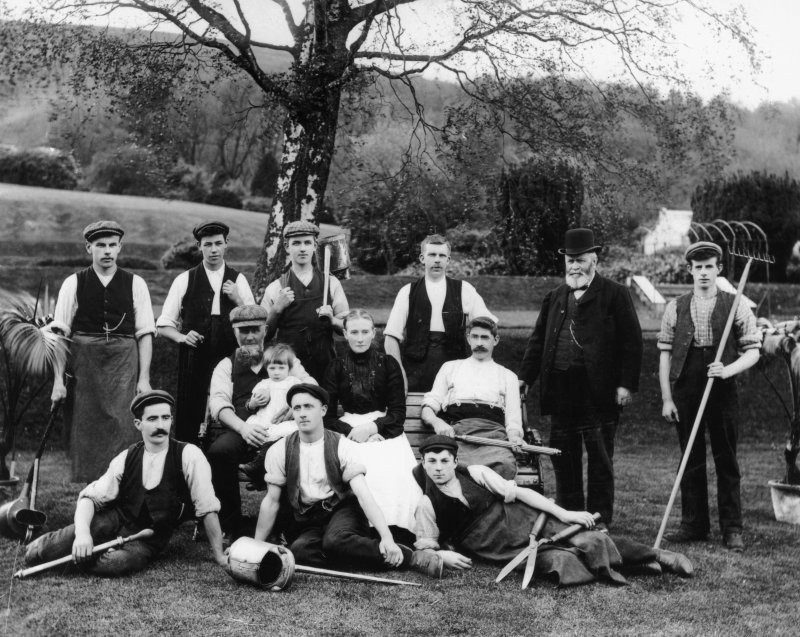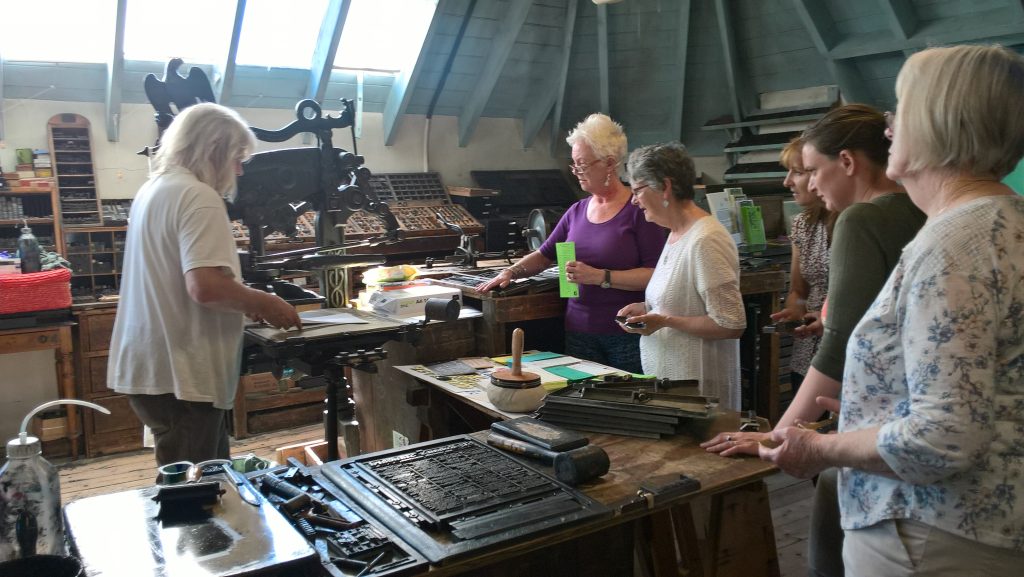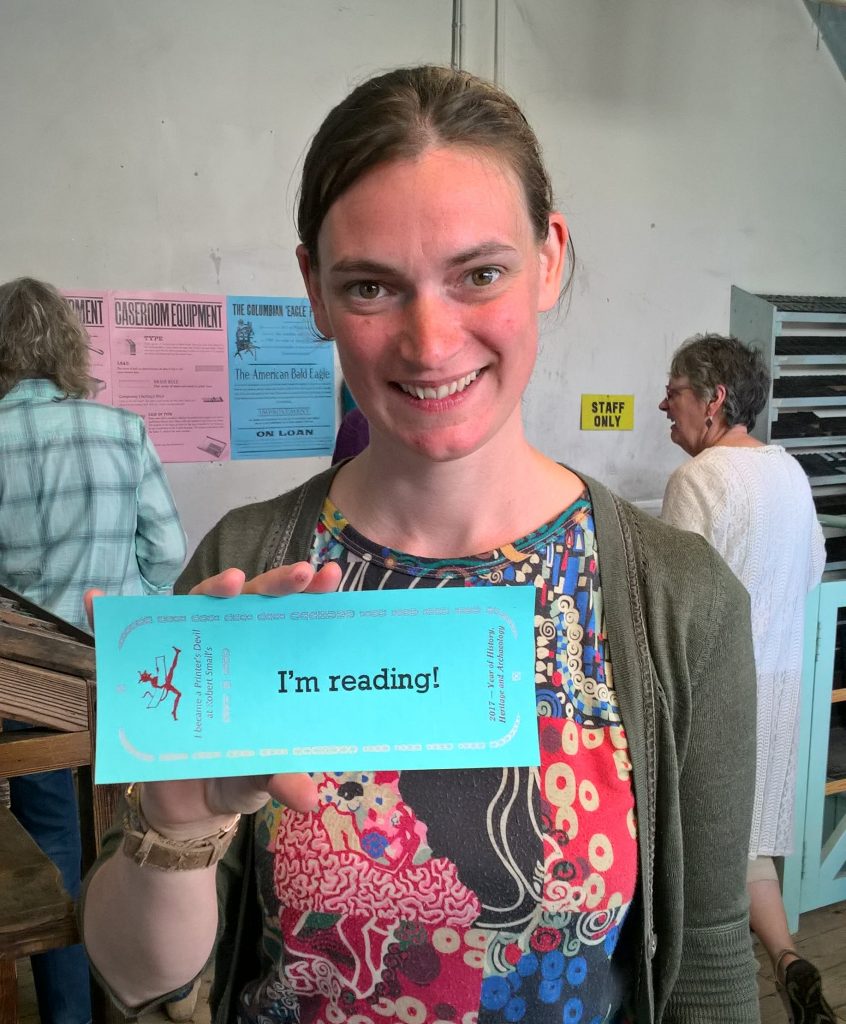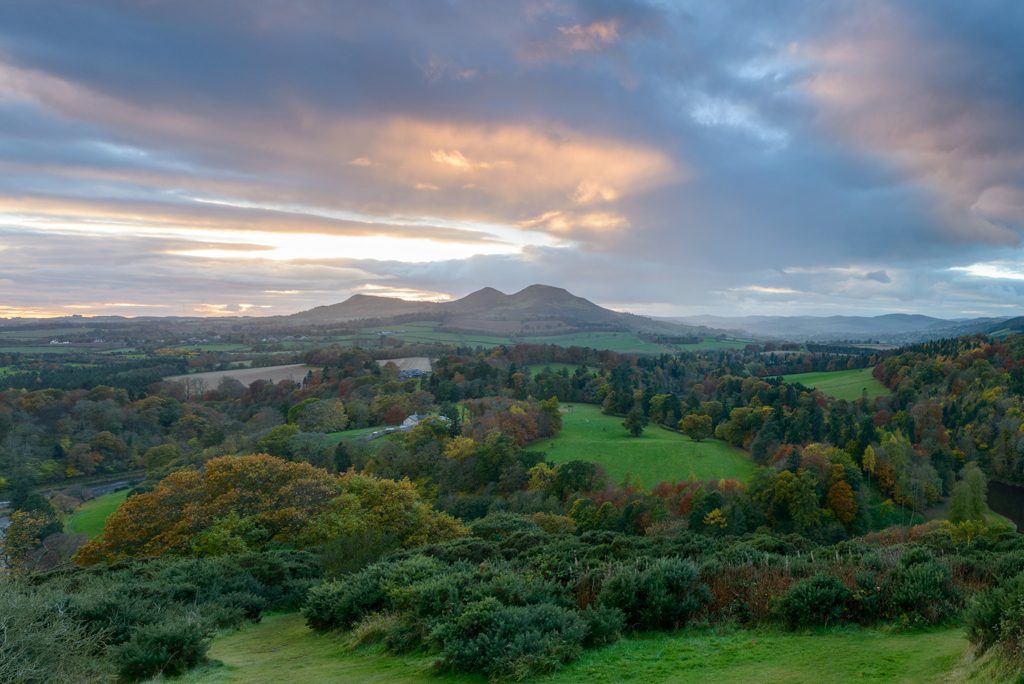Did you know that as well as recording Scotland’s historic environment through text, images and manuscripts, we also record oral histories? Our Scran database is full of sound and video showing people’s lived experience, and we’re always adding to it.
This year we’ve been working in partnership with Connecting Scotland’s Sounds and Scottish Borders Archives to develop and deliver a range of activities and events to engage communities in the Scottish Borders with their local oral history collections.
Some of the Borders oral histories available digitally through Scran include those in the Ian Landles Collection and the DiGBY (Digitising Borders History) Collection. These offer recordings of interviews with Borders residents from the 1980s to 2000, mostly recollecting their home lives, working lives and social lives in the early- to mid-20th century.

Gardeners at The Glen Country House near Innerleithen © HES
Press Play
We wanted to get people’s creative responses to these fascinating collections of experiences and memories. In February 2017, Hawick Library hosted a series of ‘Press Play’ workshops with animator Simone Russell. She guided a group of five to seven year olds through the stop-frame animation process to bring to life oral histories from Borders folk.
Tales include ‘On The Buses’ which tells the experiences of a Borders bus conductress:
And ‘Trip to Innerleithen’ which is the tale of a child who ran away from home:
Listen: Write: Print: Read
In April, I delivered a series of creative writing workshops for adults at Peebles Library, using oral histories as a stimulus for developing new work. Using Scran to access the collections, writers at all levels listened and responded to local voices from the past, including domestic servants, railways drivers and silent cinema pianists. Over a series of two workshops, creative responses were honed into poetry and prose.

Writers from our Peebles workshops printing extracts from their work at Robert Smail’s Printing Works.
In May, the writers took their work along to a letterpress printing workshop where they transformed it into artwork. The workshop was delivered by the National Trust for Scotland at the historic Robert Smail’s Printing Works in Innerleithen.
Other Sounding Borders workshops are working with members of Borders Youth Theatre and VoMo and using film, drama and poetry to engage with oral histories.
Borders Book Festival
I’m excited to say that the Sounding Borders project has secured a slot at the Borders Book Festival in Melrose this summer. Partners will talk more about the project, the writers who attended our creative workshops will have the opportunity to read extracts from their work, and animations will be screened. This showcase event, sponsored by the National Library of Scotland, is free of charge and will be held at The Knight Frank Marquee on 15 June 2017 at 5:30 pm.

Writers who attended our workshops will have the opportunity to read extracts from their work
Scran Sounds
A final output from the project will be an online sound map which will offer access to oral history collections from the Scottish Borders. Designed and hosted by Scran, the sound map will be go live later in the year and offer this fantastic project a legacy for the future.
- If you can’t wait for the Borders Book Festive, this Saturday 3 June 2017 you can join our Scotland’s Urban Past team for a day of free Oral History training in Peebles
- And you can also explore the oral histories in Scran any time you like!

